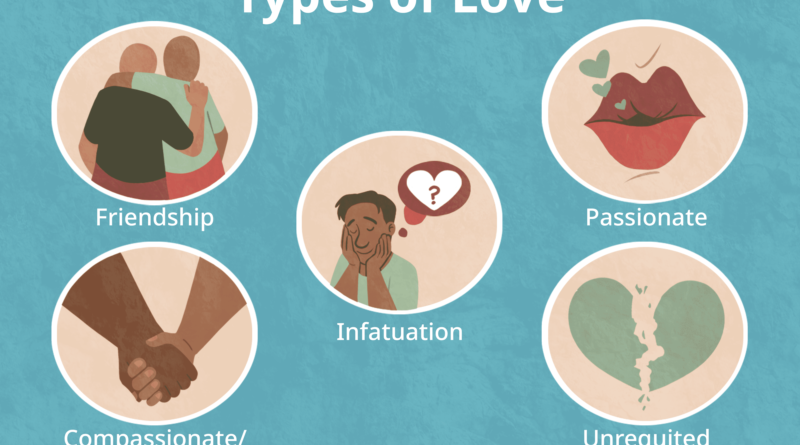Exploring the Concept of Erothtos: Desire, Emotions, and Relationships
Introduction
The study of erothtos offers significant insights on relationships, emotions, and desire within the complex web of human experience. This multidisciplinary idea, which has roots in literature, sociology, and psychology, emphasizes the intricate relationships between romantic love and interpersonal relationships. Erothtos, which comes from the word “ero,” which frequently refers to eroticism or romantic love, focuses on the emotional and psychological aspects of interpersonal interactions in addition to physical attraction.
The idea of erothtos keeps changing as we move through various historical, social, and cultural contexts, reflecting the various ways that people view intimacy, love, and connection. The core of erothtos and its relevance in a variety of fields, including psychology, art, literature, and technology, are explored in this article.
The Psychological Perspective on Erothtos
Psychological frameworks like as emotional intelligence and attachment theory can be used to analyze erothtos. According to attachment theory, early experiences and attachment patterns have a significant impact on how people build relationships. Healthy and close relationships are fostered by secure attachments, which are defined by trust and emotional availability. On the other hand, insecure attachment styles, including anxiety or avoidance, can make it difficult to build lasting connections and make intimacy more difficult.
Navigating erothtos requires emotional intelligence, which is the capacity to recognize, comprehend, and control emotions. Because they are more sensitive to their partners’ and their own emotional landscapes, those with higher emotional intelligence typically have deeper connections with others. Sustaining satisfying relationships is facilitated by the capacity to empathize, communicate, and foster emotional connection.
Cultural Variations and Attitudes Toward Erothtos
Around the world, erothtos are interpreted differently by different cultures. Certain cultures encourage healthy views toward sexuality and romantic love by celebrating candid conversations about intimacy and desire. Other communities, on the other hand, have stricter taboos and conventions that prevent candid discussions about these subjects.
Notwithstanding these variations, erothtos is a universal human experience that cuts across cultural divides. Regardless of ethnic heritage, people are bound together by a common need for connection, love, and desire.
Also Read: Perfect Wedding Gifts Lumolog: Unique Ideas to Celebrate the Couple
Erothtos in Literature and Art
Erothtos has been a recurring motif in literature and the arts for a long time. The intricacies of love, intimacy, and desire have been examined by authors and artists in everything from the fervent romances of ancient literature to contemporary film portrayals of partnerships. From the romanticized love stories of novels to the unvarnished depictions of human relationships in modern films, the idea has developed through a variety of artistic mediums.
The idea of love transcends physical attraction in writings such as Plato’s Symposium, which encourages more in-depth contemplations on emotional closeness and connection. In a similar vein, erothtos has been employed by poets and artists throughout history to examine human frailty, desire, and the nature of love.
The Role of Technology in Erothtos
The expression and experience of erothtos have been profoundly influenced by technology in the digital age. Social media and online dating services have completely changed how people investigate intimacy, desire, and relationships. The monetization of desire and the difficulties of digital communication are two issues that these platforms raise, even though they also give new chances for connection.
In addition to increasing the potential for human connection, technology has raised fresh ethical questions regarding consent, privacy, and the nature of online relationships. Therefore, negotiating the intricacies of love and intimacy in the twenty-first century requires an awareness of how erothtos works in the context of contemporary technology.
Erothtos and Personal Growth
For those looking for emotional fortitude and personal development, knowing erothtos can be inspiring. People can become more self-aware and participate in happier, more satisfying relationships by thinking back on their own needs, wants, and relationship patterns. This self-discovery, in turn, promotes emotional closeness, mutual respect, and trust in relationships with others.
Conclusion
Desire, love, and emotional connection are at the heart of the human experience, and erothtos is a complex and multidimensional idea. Its investigation provides insightful information about the intricacies of interpersonal relationships, the psychological foundations of emotional intelligence and attachment, and the effects of cultural and technological changes. People can develop deep connections, improve their personal development, and increase empathy in their interactions with others by accepting erothtos in all of its manifestations. Understanding the essence of erothtos is more important than ever in the quest for love and emotional fulfillment in a world where digital interactions are shaping society more and more.
Also Read: The Grand Duke is Mine Spoilers: A Deep Dive into Power, Love, and Intrigue
FAQs
What does the term mean?
It refers to the complex interplay of desire, emotions, and relationships. It encompasses romantic love, sexual desire, and the psychological and emotional aspects of human connections.
How is it different from just romantic love or eroticism?
While is closely related to romantic love, it extends beyond physical attraction to include emotional intelligence, attachment styles, and the deeper psychological connections that shape relationships.
Why is emotional intelligence important in understanding erothtos?
Emotional intelligence plays a key role in navigating erothtos because it enables individuals to understand and regulate their emotions, empathize with others, and foster healthy emotional connections in relationships.
How do cultural attitudes impact it?
Cultural interpretations of desire and intimacy vary, with some cultures promoting open discussions about sexuality and others imposing stricter norms. These attitudes influence how expressed and experienced across different societies.
How has technology affected it?
Technology, especially social media and online dating, has changed the way people form relationships, explore desire, and experience intimacy. While it has created new opportunities for connection, it has also introduced challenges related to privacy, consent, and the nature of digital communication.
It can contribute to personal growth?
Yes, understanding it can lead to greater self-awareness, healthier relationships, and emotional resilience. It encourages individuals to explore their desires, attachment styles, and emotional needs, fostering deeper connections with others.




